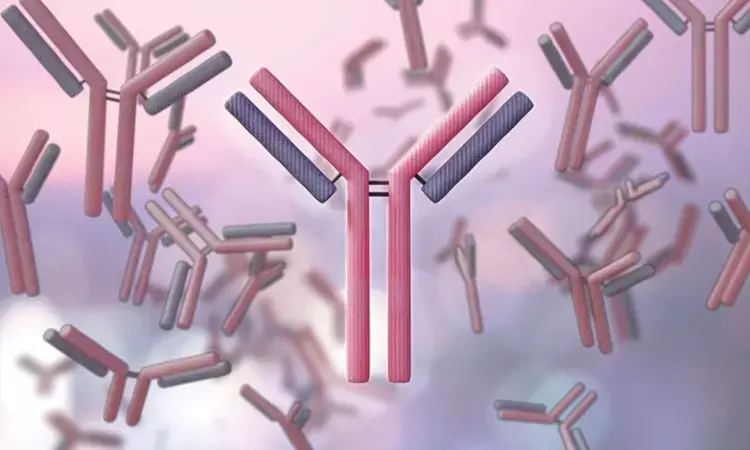- Home
- Medical news & Guidelines
- Anesthesiology
- Cardiology and CTVS
- Critical Care
- Dentistry
- Dermatology
- Diabetes and Endocrinology
- ENT
- Gastroenterology
- Medicine
- Nephrology
- Neurology
- Obstretics-Gynaecology
- Oncology
- Ophthalmology
- Orthopaedics
- Pediatrics-Neonatology
- Psychiatry
- Pulmonology
- Radiology
- Surgery
- Urology
- Laboratory Medicine
- Diet
- Nursing
- Paramedical
- Physiotherapy
- Health news
- Fact Check
- Bone Health Fact Check
- Brain Health Fact Check
- Cancer Related Fact Check
- Child Care Fact Check
- Dental and oral health fact check
- Diabetes and metabolic health fact check
- Diet and Nutrition Fact Check
- Eye and ENT Care Fact Check
- Fitness fact check
- Gut health fact check
- Heart health fact check
- Kidney health fact check
- Medical education fact check
- Men's health fact check
- Respiratory fact check
- Skin and hair care fact check
- Vaccine and Immunization fact check
- Women's health fact check
- AYUSH
- State News
- Andaman and Nicobar Islands
- Andhra Pradesh
- Arunachal Pradesh
- Assam
- Bihar
- Chandigarh
- Chattisgarh
- Dadra and Nagar Haveli
- Daman and Diu
- Delhi
- Goa
- Gujarat
- Haryana
- Himachal Pradesh
- Jammu & Kashmir
- Jharkhand
- Karnataka
- Kerala
- Ladakh
- Lakshadweep
- Madhya Pradesh
- Maharashtra
- Manipur
- Meghalaya
- Mizoram
- Nagaland
- Odisha
- Puducherry
- Punjab
- Rajasthan
- Sikkim
- Tamil Nadu
- Telangana
- Tripura
- Uttar Pradesh
- Uttrakhand
- West Bengal
- Medical Education
- Industry
Anti-CD3 monoclonal antibodies promising for treating recent-onset type 1 diabetes

Pakistan: A recent review published in Diabetes, Obesity and Metabolism has shown anti-CD3 monoclonal antibodies to be a viable treatment portion for newly diagnosed type 1 diabetes in addition to insulin therapy.
The researchers suggest that anti-CD3 monoclonal antibody treatment increases the production of endogenous insulin and improves the lifestyle of patients by reducing insulin dosage.
The results of 11 randomized control trials showed that anti-CD3 antibodies, mainly otelixizumab and teplizumab, can slow the progression of newly diagnosed T1D, noted by a significant increase in the change in AUC of C-peptide after a mixed-meal tolerance test compared with placebo.
Also, patients who received anti-CD3 monoclonal antibodies had lower insulin requirements, a sign of β-cell function preservation.
Type 1 diabetes mellitus (T1DM), a widely recognized chronic autoimmune disease, is characterized by the pathogenic destruction of beta cells, leading to the loss of endogenous insulin production. For symptomatic treatment, insulin administration remains the primary therapy. Recent studies have shown disease-modifying agents, such as anti-CD3 monoclonal antibodies to be promising in improving disease management.
The US Food and Drug Administration (FDA) approved teplizumab in late 2022 as the first disease-modifying agent for type 1 diabetes treatment. Muhammad Talal Ashraf, University of Health Sciences, Karachi, Pakistan, and colleagues aimed to evaluate the clinical evidence regarding the efficacy of anti-CD3 monoclonal antibodies in the prevention and treatment of T1DM in a review.
For this purpose, the researchers conducted a comprehensive search of online databases up to December 2022 to identify relevant RCTs (randomized controlled trials). Meta-analysis was performed using a random-effects model, and odds ratios were calculated to quantify the effects. The Cochrane risk of bias tool was employed for quality assessment.
The review included 11 RCTs comprising 1397 participants (908 participants in the intervention arm, and 489 participants in the control arm). The Participants' mean age was 15 years, and the mean follow-up time was 2.04 years.
The authors reported the following findings:
- Teplizumab was the most commonly studied intervention.
- Compared with placebo, anti-CD3 monoclonal antibody treatment significantly increased the C-peptide concentration in the area under the curve at shorter timeframes (mean difference = 0.114).
- Anti-CD3 monoclonal antibodies significantly reduced the patients' insulin intake across all timeframes (mean difference = −0.123).
- No significant effect on glycated haemoglobin concentration was observed.
"Our findings suggest that anti-CD3 monoclonal antibody treatment increases the production of endogenous insulin and improves the patients' lifestyle by reducing dosage," the researchers wrote.
"Future studies should consider the limitations, including heterogeneity and duration of follow-up, sample size, to validate the generalizability of these findings further," they concluded.
Reference:
Ashraf MT, Ahmed Rizvi SH, Kashif MAB, Shakeel Khan MK, Ahmed SH, Asghar MS. Efficacy of anti-CD3 monoclonal antibodies in delaying the progression of recent-onset type 1 diabetes mellitus: A systematic review, meta-analyses and meta-regression. Diabetes Obes Metab. 2023 Aug 14. doi: 10.1111/dom.15237. Epub ahead of print. PMID: 37580969.
Dr Kamal Kant Kohli-MBBS, DTCD- a chest specialist with more than 30 years of practice and a flair for writing clinical articles, Dr Kamal Kant Kohli joined Medical Dialogues as a Chief Editor of Medical News. Besides writing articles, as an editor, he proofreads and verifies all the medical content published on Medical Dialogues including those coming from journals, studies,medical conferences,guidelines etc. Email: drkohli@medicaldialogues.in. Contact no. 011-43720751


